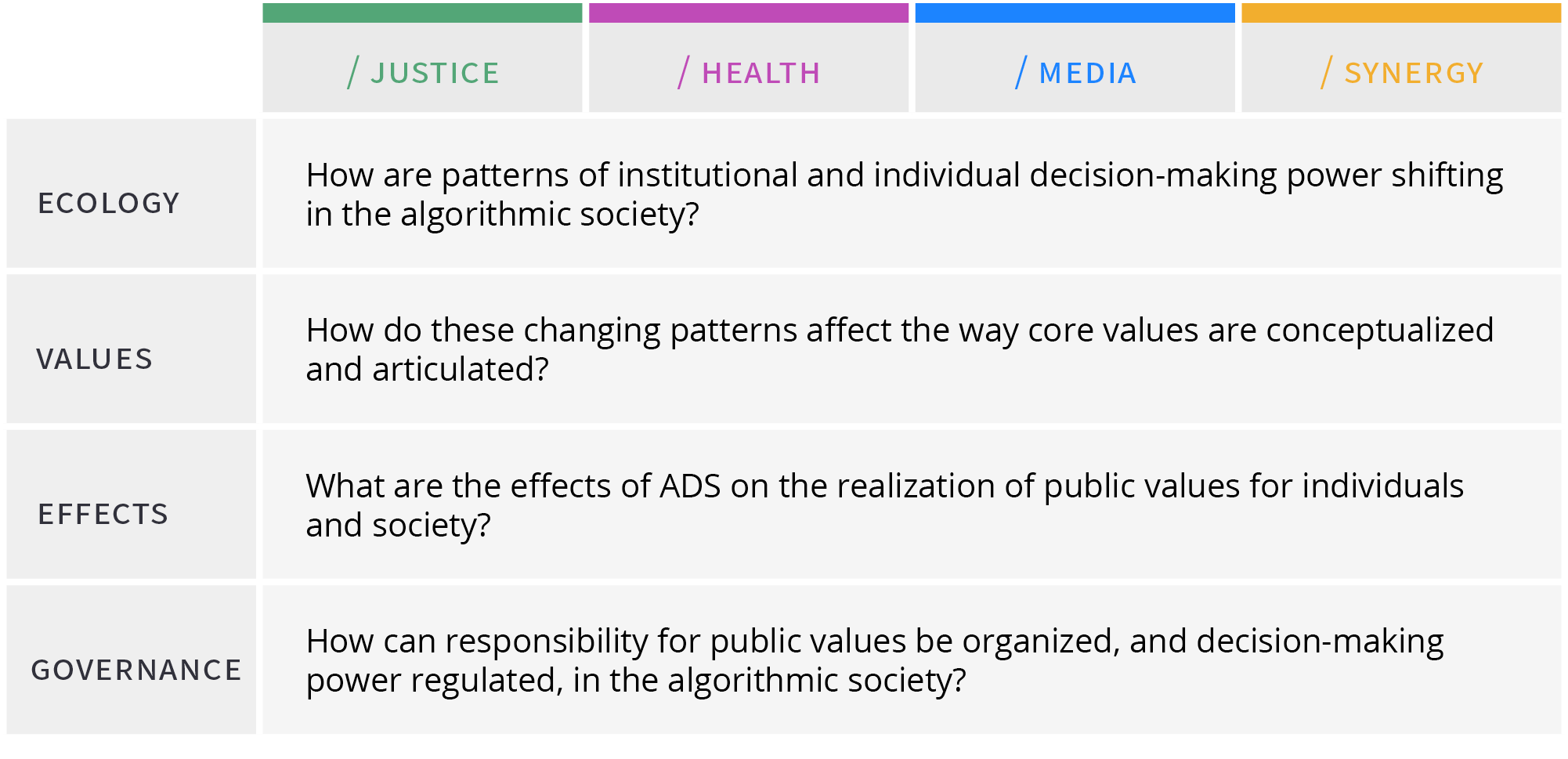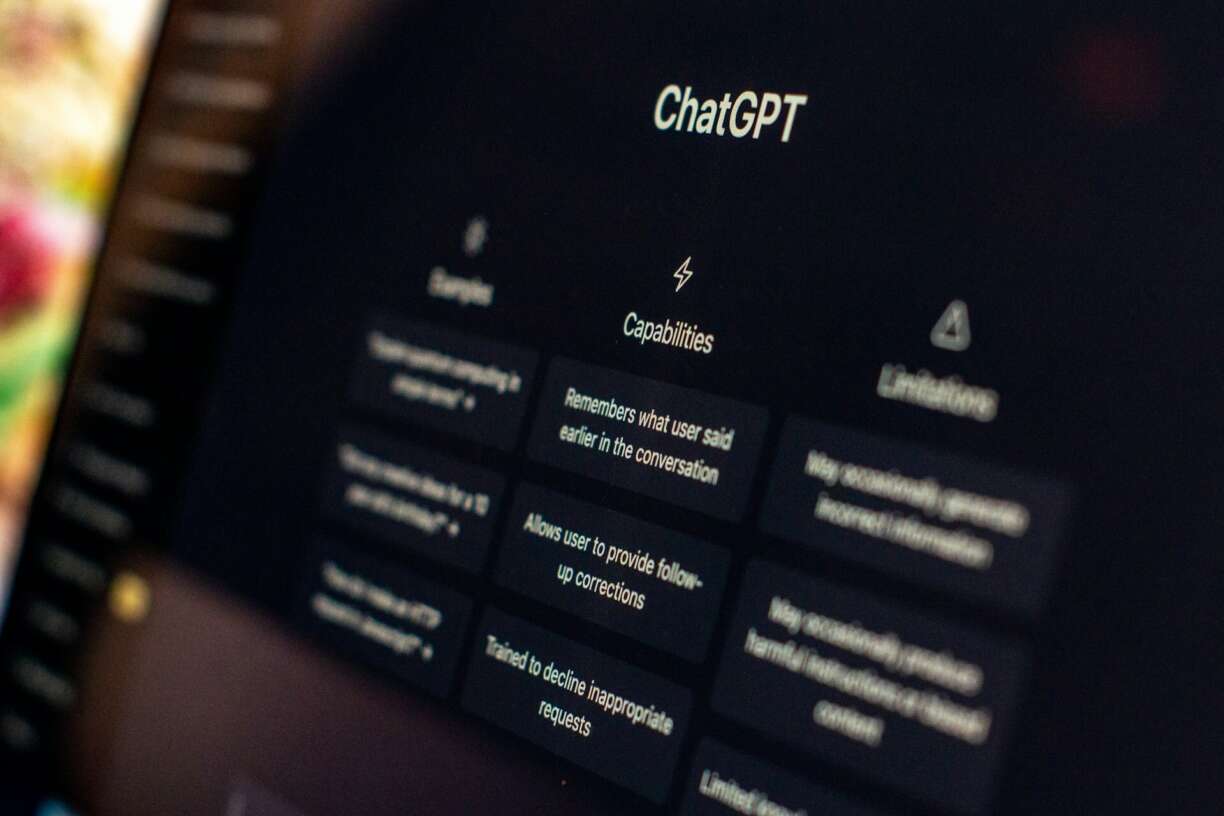Public Values in the Algorithmic Society
In the evolving algorithmic society, key decisions are not made by humans alone. Datafication, sophisticated algorithms, ever more sophisticated artificial intelligence (AI) models mean that Automated Decision Systems (ADS) now complement and in part replace human decision-making.
Automation and automated decision-making
While outsourcing decision-making to (quasi-)automated systems may yield better decisions and faster and more efficient services, it transforms established routines, checks and balances, and institutions of decision-making, leading to new challenges for the realization of public values and unprecedented shifts in decision-making power. In light of the disruptive power of ADS and its implications for society, policymakers and academics alike have been pushing for ‘human-centric’ and value-sensitive ADS technology. But realizing public values in ADS requires a deeper understanding of the social, cultural, political, and economic realities of ADS; how technology, institutions, human actors, and public values interact; and the effects this has on people and society.
AlgoSoc
The OCW-funded Gravitation Program Public Values in the Algorithmic Society (AlgoSoc) is a response to the urgent need for an informed societal perspective on automation and automated decision-making. Grounded in a deep understanding of the systemic changes that ADS entail for core public institutions, for society, and for how public values are realized, AlgoSoc develops solutions for the design of governance frameworks needed to complement technology-driven initiatives in the algorithmic society.
How do we realize public values in the algorithmic society?
The overarching research question for AlgoSoc is: How do we realize public values in the algorithmic society? Towards this end, it examines not only the theoretical underpinnings of public values, but also how these values translate into institutional design, legal frameworks, and individual or societal effects.
Research questions
AlgoSoc is organized around four central research questions. To pursue these questions, our research program spans three sectors in society—justice, health, and media. While research in each sector will seek to answer these central research questions, a fourth line of research synthesizes the findings and draw on cross-sectoral insights on (the challenges of) realizing public values in the algorithmic society.

Outcome
AlgoSoc will pave the way for a new generation of researchers, trained in tackling big challenges, in interdisciplinary teams and settings. AlgoSoc will offer evidence-based policy impact, positioning the Netherlands a leading hub in how to integrate public values in the algorithmic society. AlgoSoc will ultimately offer a compass to guide the algorithmic society.
Interdisciplinary structure of the program
Advancing a societal perspective on ADS and studying the realization of public values in the algorithmic society requires interdisciplinary commitment. AlgoSoc leverages the expertise of some of the world’s highest ranking groups in communication, law, governance, health, humancentric AI, computer and data science, with an extensive web of university based research groups and initiatives. The program is led by interdisciplinary research teams, combining expertise from the social sciences, humanities, and computer science. It also draws on a wide variety of research methods from each of these disciplines, and actively involves a range of societal partners who provide cases, data, and ADS users.
More results /
 Je medisch dossier inladen in nieuwe functie ChatGPT? Denk 10.000 keer na
Je medisch dossier inladen in nieuwe functie ChatGPT? Denk 10.000 keer na
By Natali Helberger • January 19, 2026
By Roel Dobbe • November 24, 2025
By Roel Dobbe • November 12, 2025
 Combatting financial crime with AI at the crossroads of the revised EU AML/CFT regime and the AI Act
Combatting financial crime with AI at the crossroads of the revised EU AML/CFT regime and the AI Act
By Magdalena Brewczyńska • January 16, 2026
By Sabrina Kutscher • July 02, 2025
By Natali Helberger • March 06, 2025
By Maurits Kaptein • June 06, 2025
By Leonie Westerbeek • November 22, 2024
 Clouded Judgments: Problematizing Cloud Infrastructures for News Media Companies
Clouded Judgments: Problematizing Cloud Infrastructures for News Media Companies
By Agustin Ferrari Braun • January 29, 2026
By Fabio Votta • November 05, 2025
By Ernesto de León • Fabio Votta • Theo Araujo • Claes de Vreese • October 28, 2025

